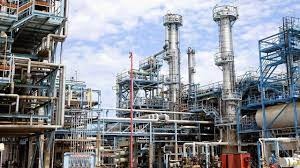Subject to any unforeseen circumstances, the Nigerian National Petroleum Company Limited (NNPCL) has granted a license to Alhaji Aliko Dangote, Chairman of Dangote Group and President of Dangote Refinery and Petrochemical Company, to begin importing Premium Motor Spirit (PMS) or petrol into Nigeria. This move comes as the construction of the Dangote Refinery and Petrochemical Company’s 650,000 barrels per day plant in Lekki, Lagos nears completion.
According to reliable sources within the Presidency, the imported fuel will be discharged at the Dangote barge and pumped into tanks. It will be sold to marketers at market-dictated prices while work continues on the refinery. The decision to choose Dangote for the importation was influenced by NNPC’s 20% minority stake in the refinery.
The NNPC has made a cash investment of $2.76 billion in the plant. The remaining payments will be made through crude sales and profits generated by the company. Approximately one-third of the payment will be made through crude supply, with deductions of a maximum of about $2 per barrel. The other one-third, amounting to $850 to $900 million, will come from the profits generated by the business.
The Dangote refinery was commissioned by former President Muhammadu Buhari on May 22, 2023, with various heads of state from West African countries in attendance. During the commissioning, Aliko Dangote stated that the first refined petroleum products from the refinery would enter the market by the end of July or August 2023.
However, further investigations have revealed that the refinery is currently at an 88% completion stage, with some equipment still awaited from manufacturers and existing equipment yet to undergo integrity testing. Additionally, work on production lines, including electrical works, is significantly behind schedule.
Based on these factors, insiders suggest that the refinery is unlikely to commence operations until March 2024. As a result, Dangote has been granted permission to import fuel as a stopgap measure until the refinery is fully operational.
The pipeline infrastructure at the refinery is touted as the largest in the world, spanning 1,100 kilometers and capable of handling three billion standard cubic feet of gas per day.










